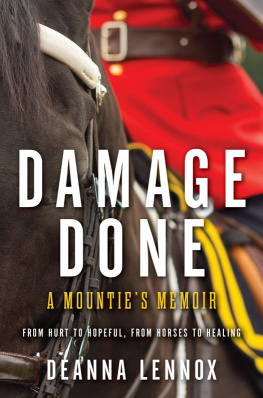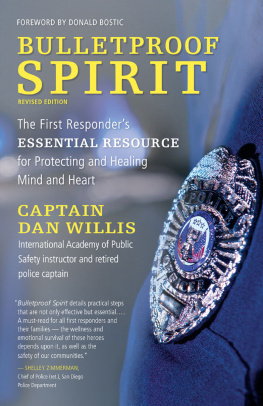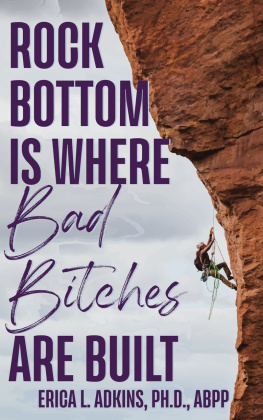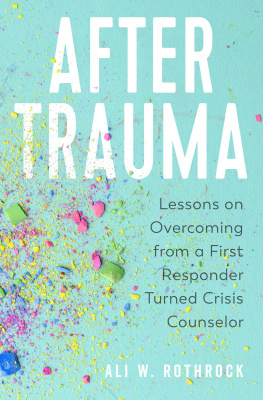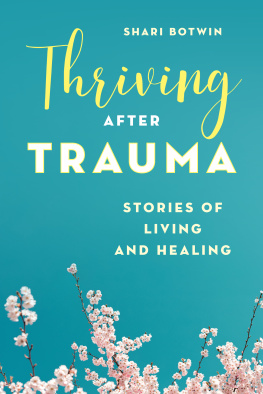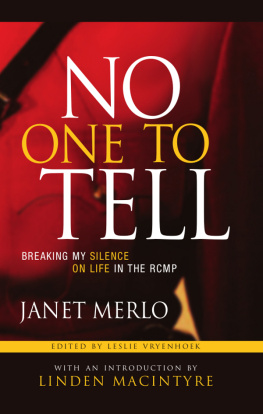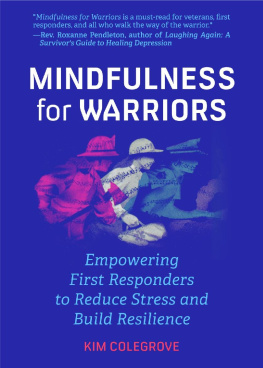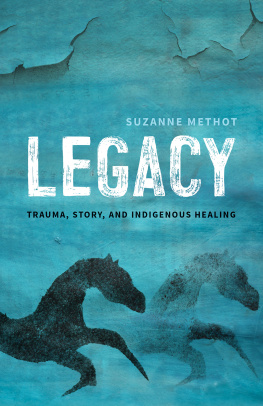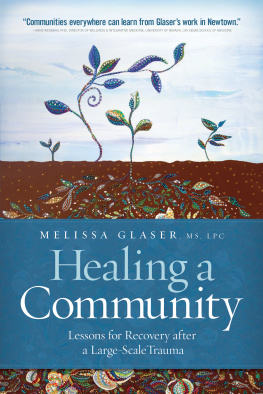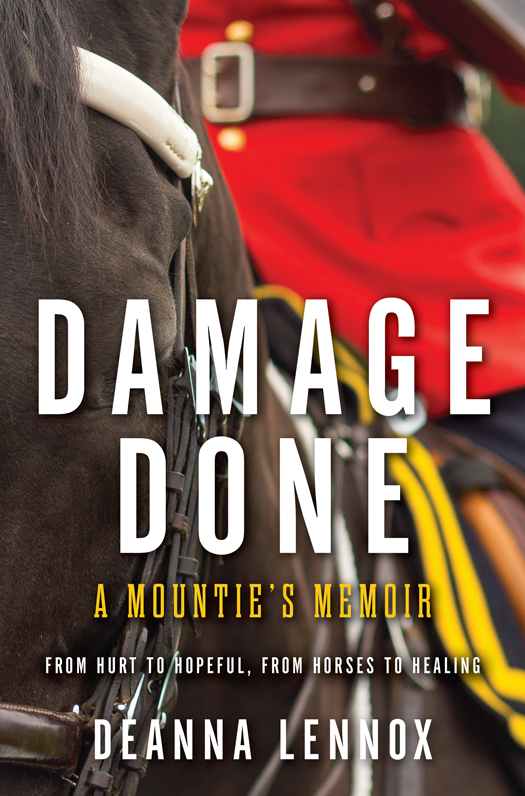DAMAGE
DONE
A MOUNTIES MEMOIR
From Hurt to Hopeful, from Horses to Healing

DEANNA LENNOX

For my familyJerry, Skylar and Kassidy
O ut of the corner of my eye, I catch movement. Its mid-afternoon, so I use one hand to shield the blazing sun and look up to see a hawk off in the distance circling high in the sky. I am walking in the grass, taking deep breaths and smelling the open air. I am in the middle of a 30-hectare field with thick trees on one side and a large grassy area on the other. Working as a police officer, I have learned the importance of being aware of my surroundings. I complete a visual sweep of my immediate area, and I notice a few obstacles that could be used for cover, if it comes to that.
I know Maggie is here somewhere and odds are she already knows Im here looking for her. Weve been through this scenario before. She knows her options are limited and that all the exits are blocked, but still she runs even though theres nowhere to gowhy does she always have to run?
I know shes not going to just give up and let herself be caught. Maggie has a strong sense of survival, and I suppose I should be glad that her first instinct is to run instead of fightalthough I know she has fight in her too. I take cover behind a piece of farm equipment. Even though I may not entirely want to, I have to leave this safe place and expose myself if Im ever going to get this done. Ive chased bad people throughout my career, and yet this field leaves me feeling incredibly unsettled. I urge myself to move forward, staying alert and focused. One wrong move and a five-minute job could turn into an all-day event.
Truth be told, Im concerned more about her friends than about Maggie herself. They can be unpredictable, and if I dont keep my wits about me, they can come up from behind. They have interfered in the past and have shown little regard for me or any authority I think I might have in this situation.
Maggie is my palomino quarter horse mare. And what I have just described is my first solo attempt to catch her in a field. Horses are living and thinking beings, with their own ideas, likes and dislikes, and even though they are huge animals, they are also prey animals, and their actions are the result of a prey mentality. They are constantly assessing their surroundings, stressed and aware that a lion or other predator could be skulking around in the bushes waiting to pounce. For survival, horses live in herds and they have a hierarchy that is tested and retested daily. The philosophy of the horse is lead, follow or get out of the way.
To have the relationship with my horse that I wanted, I would have to earn Maggies trustand respect. Right now she trusted me, she knew I wouldnt hurt her, but she was walking all over me in the respect department. My definition of respect or of how to attain respect is this: you do what you are told or suffer the consequences. What were the appropriate consequences for Maggie? Beating her wasnt an option for a variety of reasons, not least because any trust would be lost.
I would have to earn my mares respect by giving her what she needed, and she needed to feel that I was a worthy leadera force to be reckoned with, but not to be feared.
Horses, as prey animals, have a primal instinct to run from what they fear. As a predator, and as a police officer, my instinct was to control and subdue. Do it or else, was my thinking then. Everything I had never liked about authority, everything I hated, I had become. And Maggieof courseran from that.
How, I wondered, had someone so skeptical of authority become so authoritarian? Why had I changed? Where did it start?
D amage Done: A Mounties Memoir tells my story. I was a young woman who joined the Royal Canadian Mounted Police with the highest of ideals, but sixteen years on the job left me feeling bitter and broken. What helped to heal me was a connection with horsesand this, I hope and trust, is one powerful lesson of the book. Another lesson? That its possible to heal.
For many years, I was a first responder, the first on the scene of crimes or accidents or domestic violence. Police officers, firefighters, paramedics, corrections officers, soldiers in war or aiding in national disasters, social workers, nurses: we are all first responders exposed almost daily to occupational stress. We are expected to act calmly and professionally in the face of terrible human suffering and carnage.
As an RCMP officer, you arrive at the scene of a car crash, with people inside dyingand not quietly; its staggering what tons of cut metal can do to a human body. You go to a house where someone has blown his head off with a shotgun or hung himself. You respond to a call and find the shattered mother of a four-year-old child who has died in his sleep and physically stop this woman from taking her own life. You enter an apartment where a mother is astride and beating her child while the father looks on. After all the times youve notified next of kin who will never see their loved ones again, you ask yourself: how do you console the inconsolable?
Its expected that RCMP officers will put the impact of all this behind them. Get on with the job. No looking back. And some of us do manageor at least appear to. Here are some staggering facts: Members of the RCMP with thirty-five or more years of service typically collect their pensions for just two years before they die. Divorce rates among some first responders are as high as 84 percent. One in four first responders struggles with alcoholism. The numbers vary widely from study to study, but its thought that 10 to 30 percent of first responders suffer from post-traumatic stress disorder (PTSD). By a factor of two, they are more likely to die from suicide than in the line of duty. It was reported that twenty-three first responders committed suicide in Canada between April and October 2014, most of them in Ontario. Finally, the life expectancy of first responders is fifteen years less than that of the general population.
What police officers typically do with their job-induced stress and anxiety, their despair and depression, their sleeplessness and nightmares, is bury it all in what I call an internal Dumpsterand we keep on piling stuff in there even when the Dumpster is clearly overflowing. Members of the force soon isolate themselves from society, only keeping the company of other officers. Only they, we say to ourselves, truly understand.
We tell war stories and at times drink heavily, but that often only makes matters worse. Marriages and relationships unravel, health declines and the toll is heavy yet invisible. Think of Mounties and most people think of the Musical Ride and the red tunics. Damage Done: A Mounties Memoir takes you into the contemporary life of an officer in the RCMP, peeling back the glossy images to reveal whats underneath.
Many, many first responders suffer from occupational stress injuries. I did, without a doubt. One evening my husband entered a room where I was watching TVexcept I wasnt, because the TV was off. I was staring into darkness. And even now, although I have accepted my new normal, I have moments that serve to remind me that my life is not the same as it used to be.

